This article was medically reviewed by Ni-Cheng Liang, MD and by wikiHow staff writer, Danielle Blinka, MA, MPA. Dr. Ni-Cheng Liang is a board certified Pulmonologist and the Director of Pulmonary Integrative Medicine at Coastal Pulmonary Associates affiliated with the Scripps Health Network in San Diego, California. She also serves as a Voluntary Assistant Professor of Medicine at the University of California San Diego School of Medicine while volunteering for the UCSD Medical Student-Run Free Clinic for uninsured patients. With over 15 years of experience, Dr. Liang specializes in pulmonary and respiratory medical concerns, mindfulness teaching, physician wellness, and integrative medicine. Dr. Liang received her Doctor of Medicine (MD) from the University of Maryland School of Medicine. Dr. Liang was voted as a San Diego Top Doctor in 2017 and 2019. She was also awarded the 2019 American Lung Association San Diego Lung Health Provider of the Year.
There are 16 references cited in this article, which can be found at the bottom of the page.
This article has been viewed 9,903 times.
If your lungs aren’t in optimal health, you probably want to heal your lungs fast. You may want to heal your lungs after quitting smoking, or you might just want to improve your overall respiratory health. Over time, you may be able to improve your lung health by eating foods that contain antioxidants, exercising, and making other lifestyle changes. Additionally, you might heal your lungs naturally using herbs and supplements. However, check with your doctor before trying natural treatments and follow your prescribed respiratory treatment plan.
Steps
Using Diet and Lifestyle Changes
-
1Eat antioxidant-rich foods to support healthy lungs. Antioxidants are a scientifically-supported way to help heal and preserve your lungs. In addition to improving your overall respiratory health, these foods can also help heal your lungs after quitting smoking.[1] Include the following foods in your diet to get more antioxidants:[2]
- Fruits
- Vegetables
- Beans
- Nuts
- Olive oil
- Fatty fish
- Avoid having foods that contain saturated or trans fats since they aren’t as healthy.
-
2Do at least 30 minutes of cardio 5 days a week to increase your lung capacity. Exercise works your lungs and helps improve your breathing function. Pick an exercise that you enjoy so that it’s easy to stick to your goal of working out 5 days each week.[3] Try to stay active doing aerobic exercises for more than 150 minutes each week. Here are some great options:[4]
- Go for a brisk walk.
- Run.
- Ride your bike.
- Swim laps.
- Do aerobics.
- Attend gym classes.
- Use cardio equipment, like a treadmill or elliptical.
Tip: Weight gain is a common concern after quitting smoking. Fortunately, cardio exercise will help you manage your weight.
Advertisement -
3Do 5x5x5 breathing to increase your lung capacity. This breathing exercise helps you even out your inhalation and exhalation, which can improve your lung capacity. Start by counting to 5 as you inhale through your nose, then hold your breath for a 5 count. Finally, exhale through your nose as you count to 5. Repeat for 5 breaths.[5]
- Do this exercise 3-4 times a day to help improve your breathing.
-
4Take deep breaths with abdominal breathing. Place 1 hand over your stomach and 1 hand over your chest. Then, take a deep breath through your nose, drawing the air into your stomach.[6] Make sure your stomach rises under your hand but your chest doesn’t. Then, exhale through your mouth. Repeat for 1-2 minutes.[7]
- Do this exercise daily to help improve your breathing.
- Try using an incentive spirometer to help you open your lungs so they expand fully.[8]
-
5Quit smoking if you haven’t already. You probably know that smoking is bad for you, but it’s also super hard to quit. Fortunately, you don’t have to do it by yourself. Talk to your doctor about using quitting aids. Additionally, join a support group to help you stay strong.[9]
- Your doctor might recommend you use gum, patches, or lozenges to help you manage your cravings. They may also prescribe a medication to help you quit.
- Tobacco paralyzes cilia and makes it more difficult to clear your throat. It can also worsen your lungs’ functions.
-
6Drink 11 to 15 cups (2.6 to 3.5 L) of fluids daily to stay hydrated. Fluids help keep your lungs working properly and thin out mucus so it doesn’t build up in your lungs. Carry a water bottle with you so you can sip throughout the day. Additionally, eat foods like soup, fruit, and vegetables that contain a higher water content. This will help you keep your body hydrated.[10]
- If you’re very active, increase your fluid intake.
- All fluids count toward your daily hydration goal, so you’re not limited to water.
-
7Reduce your indoor air pollutants to protect your lungs. Indoor air pollutants can be very harmful to your lungs, so do your best to limit them in your home and workplace. Here are some changes you can make to improve your indoor air quality:[11]
- Install a HEPA filter.
- Opt for natural cleaning products.
- Choose fragrance-free personal care and cleaning products.
- Vacuum to remove dust and allergens.
- Stop using aerosol sprays.
- Don’t use air fresheners, which contain chemicals.
- Test for radon.
-
8Stay indoors on days with poor outdoor air quality. The outdoor air quality where you live has a big impact on your lung health. Unfortunately, you can’t control what goes into the air. To help protect yourself, spend as much time indoors as possible on days when the air quality is bad.[12]
- Check your indoor air quality here: https://airnow.gov/index.cfm?action=aqibasics.aqi
Healing Lungs Naturally
-
1Drink 18 fl oz (530 mL) of green tea daily for healthier lungs. Green tea contains antioxidants that support healthy lungs. It may even help your lungs heal after smoking and might protect against lung cancer. To get these benefits, consume at least 3 servings a day.[13]
- Opt for decaffeinated tea if you prefer.
Variation: Take green tea extract if you don’t enjoy drinking green tea.
-
2Consume 1-2 raw garlic cloves every day to protect your lungs. Raw garlic contains properties that help protect your lungs from disease, such as cancer. Crush the garlic to make it easier to eat and digest. Then, eat the garlic by itself, sprinkle it onto your food, or mix it into a smoothie.[14]
- For instance, you might stir the garlic into olive oil and drizzle it on a slice of bread. Alternatively, you might add the raw garlic to cooked rice or quinoa.
-
3Drink ginger tea to thin mucus and increase blood flow to your lungs. Buy bagged ginger tea or chop up fresh ginger to use for tea. Pour hot water over your tea bag and let it steep for 3 minutes. If you’re using fresh ginger, boil the ginger in water, then strain out the ginger pieces before you drink your tea.[15]
- Sweeten your tea with honey if you don’t like the taste.
- You can also take ginger via a supplement if you prefer.
-
4Take oregano oil as a natural decongestant and antihistamine. Make a 50-50 mixture of oregano oil and a carrier oil, such as almond oil. Put 1-2 drops of the mixture under your tongue and hold it there for 3-5 minutes. Then, wash the oil out of your mouth with water. Use the oil 3-4 times a day for about a week while you’re feeling ill.[16]
- If you don’t like the taste of the oil, try oregano oil capsules. Follow the directions on the bottle to take the capsules as a supplement. Typically, you’ll take 200 mg up to 3 times a day for 1-4 weeks.[17]
-
5Use eucalyptus as a natural decongestant. Eucalyptus contains a chemical called eucalyptol that may support a healthy respiratory system. Take a eucalyptus supplement to help break up mucus. Alternatively, add a few drops of eucalyptus oil to your shower or bath to soothe your airways and thin out mucus.[18]
- Look for other products that contain eucalyptus, like creams, soaps, and tea. This may make it easier for you to use eucalyptus to help your lungs.
-
6Relax your respiratory system using peppermint oil. Peppermint oil soothes your airways, helps with a sore throat, and it may help you cough up mucus. To use it, put 2-3 drops of peppermint oil in your shower or bath. Then, breathe deeply to inhale the peppermint.[19]
- You can also brew peppermint tea. Inhale the scent of peppermint as you sip your tea.
-
7Drink rosemary tea for nutrients that protect your lungs. Rosemary is also packed with nutrients that help heal your lungs. Buy bagged rosemary tea and brew it by pouring hot water over a bag of tea. Let the tea steep for 3 minutes.[20]
- As another option, take a rosemary supplement to potentially protect your lungs.
When to Seek Medical Care
-
1Check with your doctor before using herbs and supplements. While herbal treatments are generally safe, they aren’t right for everyone. They may interact with medications you’re taking or could worsen your condition. Talk to your doctor before you use any natural treatments to make sure they’re safe for you.[21]
- Tell your doctor which herbs and supplements you plan to take and that you’re trying to heal your lungs.
-
2Follow your doctor’s treatment advice if you have a lung condition. See your doctor for a proper diagnosis if you have a lung condition. Then, work with your doctor to create a treatment plan. Always follow your doctor’s advice for treating your condition.[22]
- Don’t stop a treatment that your doctor prescribed without first getting their okay. While you may be able to help heal your lungs with dietary changes, lifestyle habits, and natural treatments, some conditions require medical treatments.
- Some over-the-counter supplements and medications can prevent inhalers or lung medication from working properly. Tell your doctor about any that you take to see if they cause negative interactions.
-
3Get vaccinated against the flu and pneumonia. Respiratory infections can lead to lung complications, so it’s important to protect your health. Go to your doctor or a minute clinic for an annual flu vaccine. Additionally, talk to your doctor about getting vaccinated against pneumonia if you have a history of bad respiratory illnesses.[23]
- These vaccines may prevent you from getting the flu or pneumonia. If you do get sick, you’ll likely have a milder case if you’ve been vaccinated.
Expert Q&A
-
QuestionWhat foods help repair lungs?
 Ni-Cheng Liang, MDDr. Ni-Cheng Liang is a board certified Pulmonologist and the Director of Pulmonary Integrative Medicine at Coastal Pulmonary Associates affiliated with the Scripps Health Network in San Diego, California. She also serves as a Voluntary Assistant Professor of Medicine at the University of California San Diego School of Medicine while volunteering for the UCSD Medical Student-Run Free Clinic for uninsured patients. With over 15 years of experience, Dr. Liang specializes in pulmonary and respiratory medical concerns, mindfulness teaching, physician wellness, and integrative medicine. Dr. Liang received her Doctor of Medicine (MD) from the University of Maryland School of Medicine. Dr. Liang was voted as a San Diego Top Doctor in 2017 and 2019. She was also awarded the 2019 American Lung Association San Diego Lung Health Provider of the Year.
Ni-Cheng Liang, MDDr. Ni-Cheng Liang is a board certified Pulmonologist and the Director of Pulmonary Integrative Medicine at Coastal Pulmonary Associates affiliated with the Scripps Health Network in San Diego, California. She also serves as a Voluntary Assistant Professor of Medicine at the University of California San Diego School of Medicine while volunteering for the UCSD Medical Student-Run Free Clinic for uninsured patients. With over 15 years of experience, Dr. Liang specializes in pulmonary and respiratory medical concerns, mindfulness teaching, physician wellness, and integrative medicine. Dr. Liang received her Doctor of Medicine (MD) from the University of Maryland School of Medicine. Dr. Liang was voted as a San Diego Top Doctor in 2017 and 2019. She was also awarded the 2019 American Lung Association San Diego Lung Health Provider of the Year.
Board Certified Pulmonologist Eating more of a plant-based diet and avoiding red meats can help relieve inflammation and irritation in your lungs.
Eating more of a plant-based diet and avoiding red meats can help relieve inflammation and irritation in your lungs.
References
- ↑ Ni-Cheng Liang, MD. Board Certified Pulmonologist. Expert Interview. 18 June 2021.
- ↑ https://www.betterhealth.vic.gov.au/health/healthyliving/antioxidants#sources-of-antioxidants
- ↑ Ni-Cheng Liang, MD. Board Certified Pulmonologist. Expert Interview. 18 June 2021.
- ↑ https://www.ncbi.nlm.nih.gov/pmc/articles/PMC4818249/
- ↑ https://www.rush.edu/health-wellness/discover-health/8-tips-healthy-lungs
- ↑ Ni-Cheng Liang, MD. Board Certified Pulmonologist. Expert Interview. 18 June 2021.
- ↑ https://www.rush.edu/health-wellness/discover-health/8-tips-healthy-lungs
- ↑ https://kidshealth.org/en/teens/use-incentive-spirometer.html
- ↑ https://www.lung.org/about-us/blog/2019/07/can-you-detox-your-lungs.html
- ↑ https://www.betterhealth.vic.gov.au/health/healthyliving/water-a-vital-nutrient
- ↑ https://www.lung.org/about-us/blog/2019/07/can-you-detox-your-lungs.html
- ↑ https://www.lung.org/clean-air/outdoors/10-tips-to-protect-yourself
- ↑ https://www.ncbi.nlm.nih.gov/pmc/articles/PMC1810371/
- ↑ https://www.ncbi.nlm.nih.gov/pmc/articles/PMC3718302/
- ↑ https://lunginstitute.com/blog/five-natural-remedies-promote-lung-function/
- ↑ https://lunginstitute.com/blog/five-natural-remedies-promote-lung-function/
- ↑ https://www.winchesterhospital.org/health-library/article?id=111715
- ↑ https://medlineplus.gov/druginfo/natural/700.html
- ↑ https://www.uchealth.org/today/the-power-of-peppermint/
- ↑ https://lunginstitute.com/blog/five-natural-remedies-promote-lung-function/
- ↑ https://www.hopkinsmedicine.org/health/wellness-and-prevention/herbal-medicine
- ↑ https://www.rush.edu/health-wellness/discover-health/8-tips-healthy-lungs
- ↑ https://www.health.harvard.edu/lung-health-and-disease/breathing-life-into-your-lungs
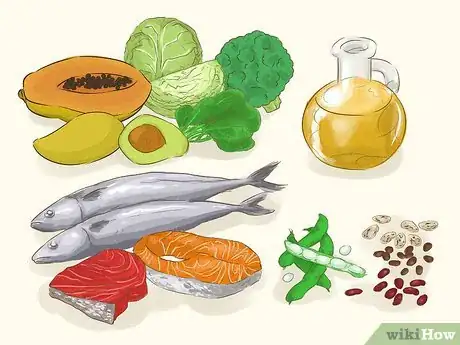

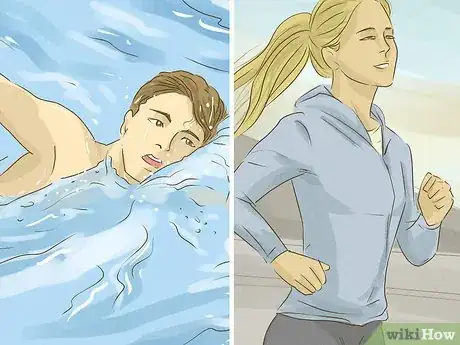
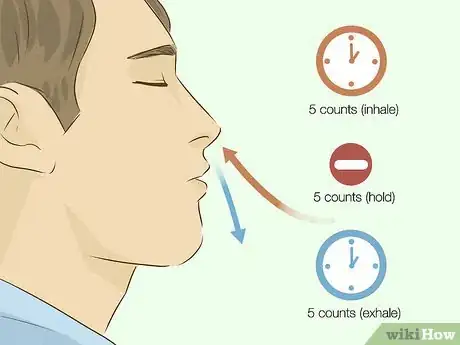
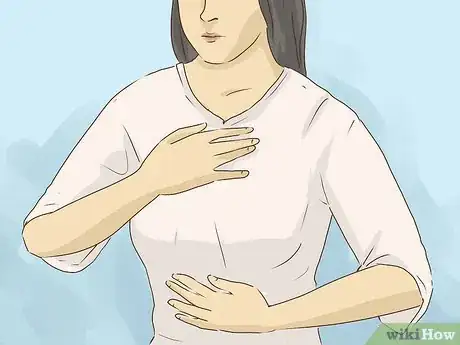
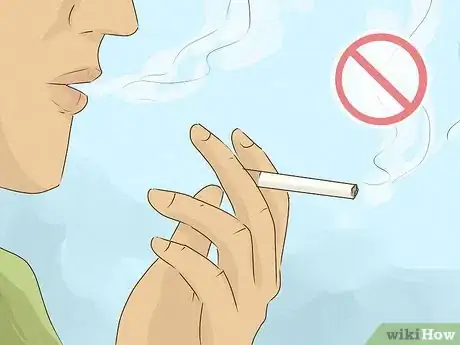
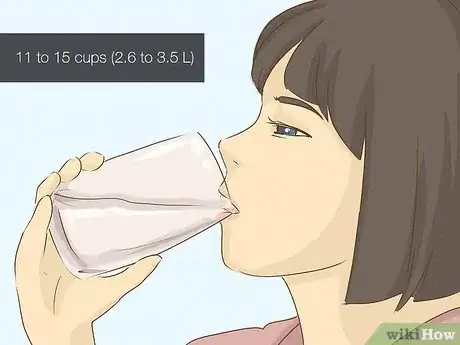
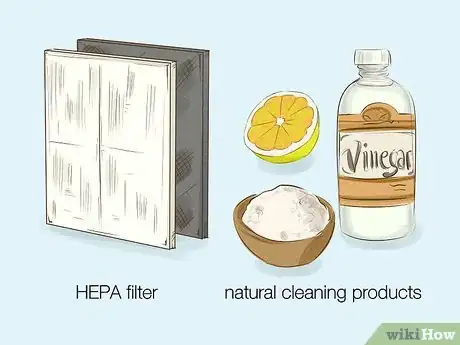

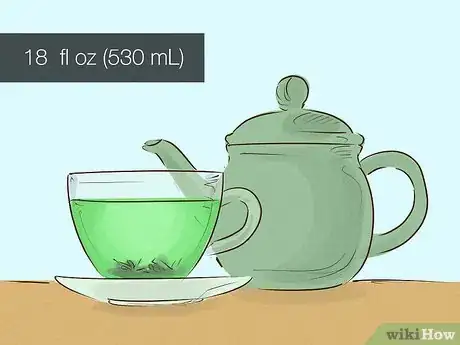
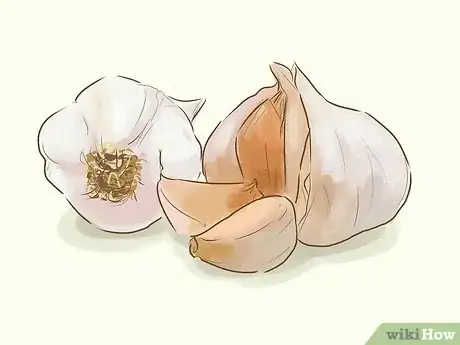
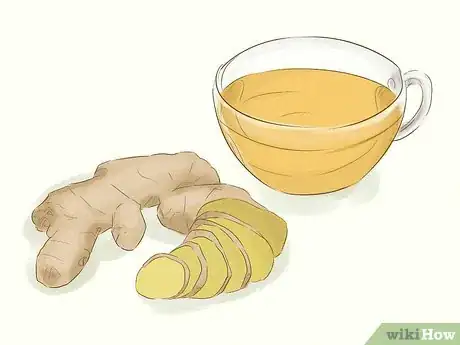
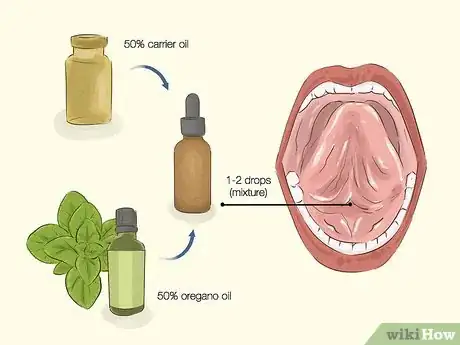
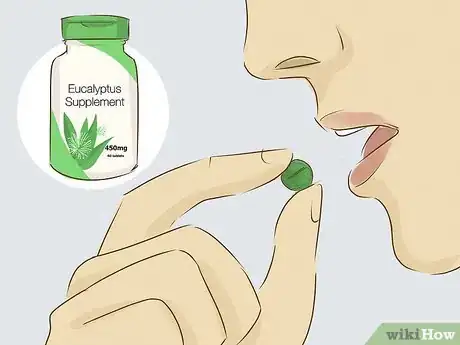
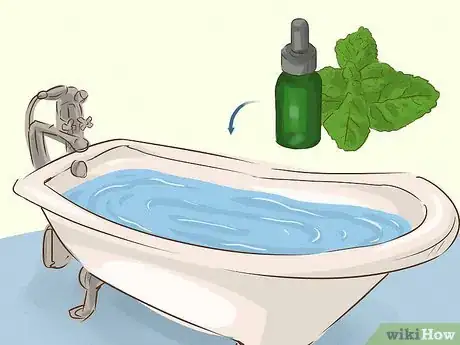
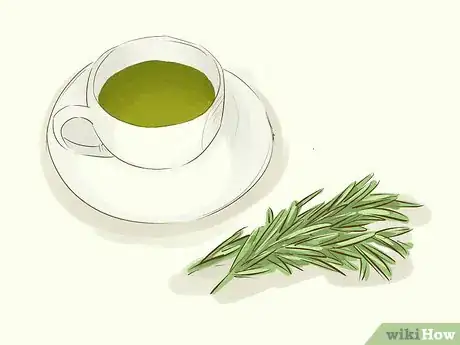
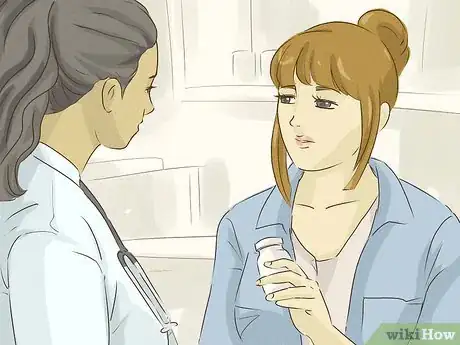
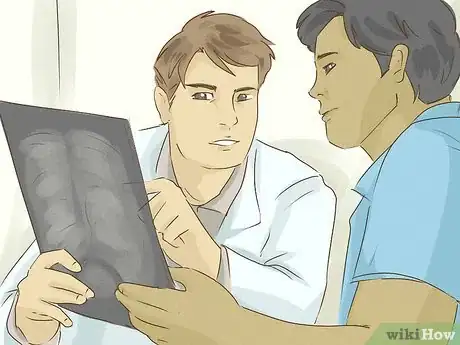
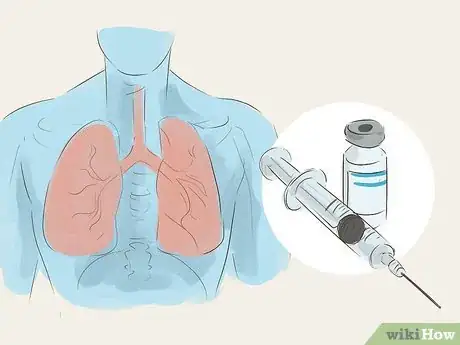
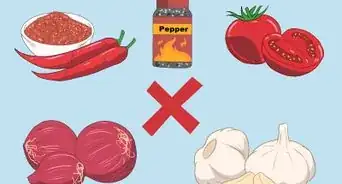


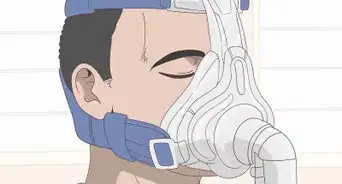
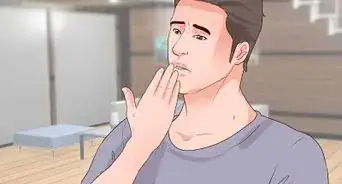

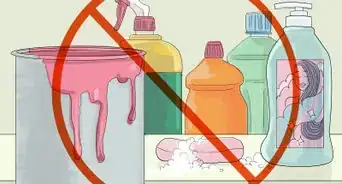
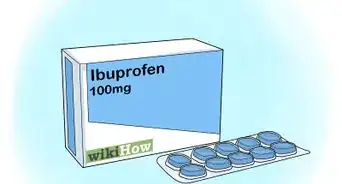
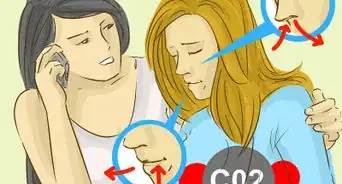
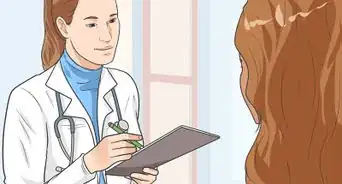

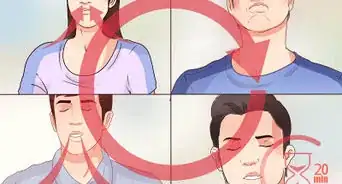








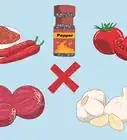

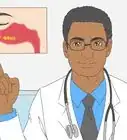




































Medical Disclaimer
The content of this article is not intended to be a substitute for professional medical advice, examination, diagnosis, or treatment. You should always contact your doctor or other qualified healthcare professional before starting, changing, or stopping any kind of health treatment.
Read More...